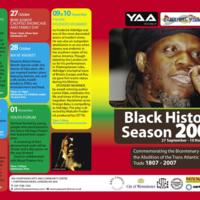
Black History Season 2007: Commemorating the Bicentenary of the Abolition of the Trans Atlantic Slave Trade 1807-2007
A programme of events and activities for Black History Month 2007 from Yaa Asantewaa Arts and Community Centre had a particular focus on the bicentenary. The programme included theatre, youth projects and family days. Calypso Fuh So performed special Calypsos to mark the bicentenary, and YAA/Carnival Village organised a commemorative walk to remember ancestors who died in slavery, and the Black presence in Britain. Ritual Theatre Arts created a film celebrating thirty years of African dance in Britain and International Word Power featured performances of poetry, storytelling and song.
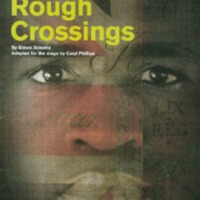
Rough Crossings
Historian Simon Schama's true story of a plantation slave (Thomas Peters) and a British naval officer (John Clarkson) and their search for freedom at the time of the American War of Independence. Schama's account was adapted for the stage by Caryl Phillips, directed by Rupert Goold and produced by the Headlong Theatre Company. It explores ideas of racial identity, home and freedom, as former slaves who fought for the British army are led across the Atlantic to the newly-created province of Sierra Leone. The play toured West Yorkshire Playhouse, Birmingham Repertory Theatre, Liverpool Everyman and Lyric Hammersmith.
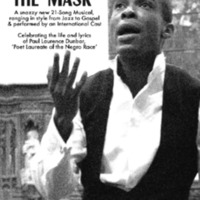
Lifting the Mask
London Shakespeare Workout presented a new 21-song musical, celebrating the life of the African-American poet Paul Laurence Dunbar. Dunbar's parents were freed slaves and he used some of their tales of plantation life in his work. Set backstage in a British theatre in 1897, the play explored themes such as love and loneliness, racial interactions, and the abolition of the slave trade. With an original score by Tim Williams, the play opened in Westcliffe, and toured 26 venues around the UK. Each performance was followed by a ‘talk-back’, allowing audience members to share their views on the issues raised by the production. Special interactive workshops were also created for schools and community groups to bring the concepts of slavery and abolition to life through history and literature.
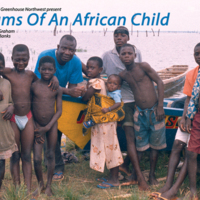
Dreams of an African Child
Dreams of an African Child is a one act play about the 21st century sale of children in the River Volta region of Ghana. It was written by Robin Graham, produced by The Ugly Tree and Greenhouse Northwest Theatre Company, and directed by Toria Banks. The drama centres on the reactions of a rural African family when their teenage son, missing presumed dead, returns home to his family after being sold eight years before. The play was first performed in Accra in 2004, and then in 2008 toured schools and community venues in the North of England and Wales. Workshops were held to discuss the issues of child trafficking raised by the play.
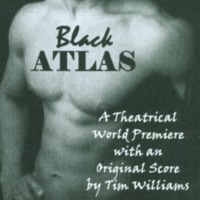
Black Atlas
A performance by the London Shakespeare Workout based on George MacDonald Fraser's novel 'Black Ajax'. The play, set in Regency England, tells the historical tale of two enslaved men through dialogue, song and verse. One slave is from America, another is from Africa. The former, Tom Molineaux, becomes the first Black Prize Fighter in Britain. Black Atlas featured an original score by Tim Williams. The play opened in Cambridge and toured to 40 different venues around the UK.

Trading Faces: Recollecting Slavery
Trading Faces: Recollecting Slavery was a consortium project developed by Future Histories (a non-profit organisation set up to maintain archives of African, Caribbean and Asian performing arts in the UK), Talawa Theatre Company (a leading Black-led touring theatre company) and V&A Theatre Collections. Trading Faces made use of archive documents, video and audio material to explore the legacy of the transatlantic slave trade in British performing arts and society. By promoting the use of primary resources, the online exhibition aimed to stimulate creativity, critical thinking, individual responsibility and participation. Highlights of the exhibition included a performance timeline featuring recently archived material from the past 200 years, narratives of slavery from both the past and present and a series of virtual rooms, which explored ritual, religion, carnival and masquerade amongst other aesthetic themes. On the Open Doors section of the site, users contributed material and ideas to promote a critical debate on the subject. As part of the project, the 'Retrace: Identity and Heritage' educational resource pack from Talawa Theatre Company is about the exchange of culture between the UK and other countries linked by the transatlantic slave trade and colonialism, and the impact of these relationships on the performing arts.
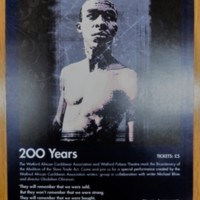
200 Years
The Watford African Caribbean Association and Watford Palace Theatre marked the bicentenary with a special performance created by the Watford African Caribbean Association writers' group in collaboration with writer Michael Bhim and director Gbolahan Obisesan. The three month research project led to the production of prose, drama and monologues covering all aspects of the slave trade.
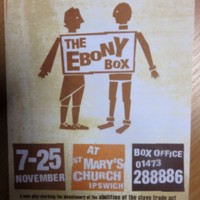
The Ebony Box
A play from the Red Rose Chain Theatre Company in Ipswich, which focused on the role of 'local hero' and abolitionist Thomas Clarkson, who lived in nearby Playford. The play was written and directed by Joanna Carrick and performed in a disused church on the Ipswich Docks.
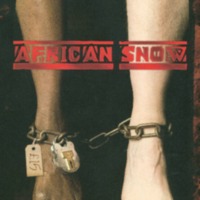
African Snow: Secrets of the Trade
In conjunction with York Theatre Royal, Riding Lights Theatre Company produced a new play written by Murray Watts, directed by Paul Burbridge, with original music by Nigerian musician Ben Okafor. African Snow: Secrets of the trade was originally commissioned by the Church Mission Society, an organisation founded in 1799 by representatives of the abolition movement, including William Wilberforce. The play sought to explore the ideas associated with antislavery and how they can be put to use in the modern day campaign for the end of slavery. Opening at York, the play went on to have a West End Transfer followed by a national tour. The main characters are John Newton, the converted slave-trader who later wrote 'Amazing Grace', and the former slave and abolitionist Olaudah Equiano. The play saw them confronting each other’s differing perspectives, creating a dialogue in which the audience could witness alternative views towards slavery. A 'snow' was a class of ship, commonly used for the transportation of slaves. 'The African' was the first slave ship on which John Newton sailed.
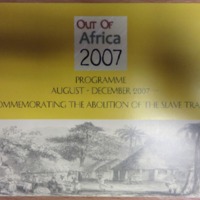
Out of Africa 2007
The African and African Caribbean Kultural Heritage Initiative (ACKHI) is a not-for-profit Black Afrikan-led community organisation, with the aim is to promote, protect and preserve the history, heritage and culture, of peoples of Black African heritage living or working in Oxfordshire. The Out of Africa programme of events in 2007 included an exhibition of books about slavery and the slave trade, which toured Oxfordshire libraries, and performances of African music and contemporary dance. The ‘Remembering Slavery’ commemorative service was held in Christ Church Cathedral. ‘Connections’ was a research project looking at Oxfordshire’s links to the system of slavery and the slave trade. ‘InTentCity’ was a visual arts project, in partnership with Fusion Arts, bringing together cultural groups, primary schools and artists to transform tents into works of art – one theme addressed was ‘Freedom’. Reflecting the legacy of the system of slavery and the slave trade, ‘Common Threads’ was an exhibition of textile work by the Textiles for Peace group, local women representing multi-cultural Oxfordshire. In ‘Ancestral Souls’, the African Women’s Art Collection (AWAC) collaborated with women of African descent to produce and exhibit 200 dolls to represent the diaspora of African peoples.
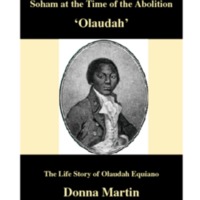
Soham at the Time of the Abolition
Soham Village College partnered with Soham Action 4 Youth (SA4Y) and Soham Museum in a project to record Soham at the Time of the Abolition, to commemorate the bicentenary and celebrate the life of Olaudah Equiano. Equiano, otherwise known as Gustavus Vassa, was the former slave who became an antislavery campaigner in the 18th century. His connection to the Cambridgeshire town of Soham is in his marriage to a local woman, Susannah Cullen, at St Andrew’s Church. Both of his daughters were born and baptised in the town. The research aspect of the project including mapping the town of Soham as it was in the 18th century, the results of which were published in a book by Mac Dowdy. 'Olaudah: The Life Story of Olaudah Equiano' was written by Donna Martin.
Several community events took place during the course of 2007 and 2008, including a re-enactment of Equiano’s wedding at St Andrew's Church in Soham, performed by Soham Village College theatre group Stage Chance, in partnership with Momentum Art’s Untold Stories Arts and Heritage Project. The event also comprised several speakers and performances of African dance and drumming, and the launch of a book by Angelina Osborne about the life of Joanna Vassa, Equiano’s only surviving daughter. A permanent plaque to Olaudah Equiano was unveiled in the church. The project also featured an exhibition of African art and portraits of Equiano by Soham residents and young people.
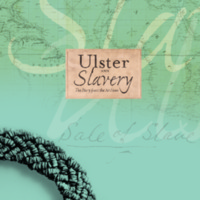
Hidden Connections: Ulster and Slavery 1807-2007
The Hidden Connections exhibition was a result of partnership between the Public Record Office of Northern Ireland (PRONI) and the Linen Hall Library in Belfast. The exhibition explored Ulster's links with slavery after 1807 via people, events and places, and looked at both the pro and anti-slavery debates in Northern Ireland. It drew on documents from PRONI’s archives, artefacts from the Ulster Museum and contemporary books and pamphlets from the Linen Hall Library and elsewhere. After its launch at Linen Hall Library, the exhibition toured Northern Ireland, travelling to Down Museum, the Harbour Museum in Derry, Lisburn City Library and the Ulster American Folk Park.
The wider Hidden Connections programme featured workshops exploring archival sources, performances and lectures by leading scholars. There was a panel discussion on ‘Slavery Now’, a walking tour of Belfast sites associated with the slavery issue, and a boat trip on the Lagan focusing on the port’s links with slave colonies. Gerry McLaughlin’s ‘Blood sugar’ is a drama documentary devoted to the literature of slavery, music and song. 'Freedom and Liberty' was the theme of the UK-wide Archives Awareness Event. PRONI organised special events and produced a catalogue, 'Ulster and Slavery', listing the references to slavery to be found in the archive.
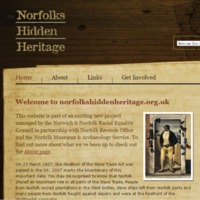
Norfolk's Hidden Heritage
Norfolk’s Hidden Heritage was a partnership project between the Norwich and Norfolk Racial Equality Council (NNREC), the Norfolk Record Office (NRO) and the Norfolk Museums and Archaeology Service (NMAS) which researched the links between Norfolk and transatlantic slavery. For example, many slaving voyages left England from King's Lynn, while the Dalling family of Norfolk owned the Donnington Castle plantation in Jamaica. The exhibition, curated by Norfolk Record Office, won an award for the Best Black History Project for the East of England from the Black History Society. The website provided an interactive timeline to trace Norfolk’s Hidden Heritage from 1670 to today. There was also a database to search for important people, places and dates. Workshops were run in a number of schools, and information packs distributed. More widely, the project worked with the University of East Anglia, Norwich City College, the Prison Service and the Youth Offending Team. As part of the project, Norwich Academy Drama Group put together the production 'Diary of a Son of Africa', about an enslaved African who eventually gained his freedom.
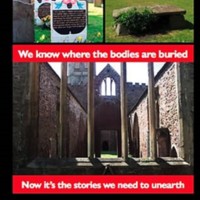
Diverse Stories
The Diverse Stories project began in 2007 with participants from Malcolm X Elders, an Afro Caribbean elders and community group in Bristol, taking part in a creative writing project to mark the bicentenary. This was jointly supported by Show of Strength Theatre Company, Our Stories Make Waves and English Heritage. Participants visited the ruined Temple Church in Bristol and explored its links with the slave trade and abolition movement. Their responses included a range of dramatic monologues covering themes such as slavery, racism, trade, childhood memories of Jamaica and migration from the Caribbean. These were read at a performance by a professional actor. In 2008 the project was given a permanent record by a selection of the stories being recorded on audio CD.
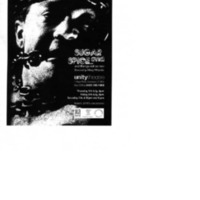
SUGAR and SPICE and things not so nice
A play directed by Hilary Westlake, performed at Unity Theatre in Liverpool, in collaboration with Hope Street Ltd, a community arts centre. Using film, text and movement, the performance investigated how the industry of slavery continues to flourish in modern times, not only globally and nationally, but also locally.
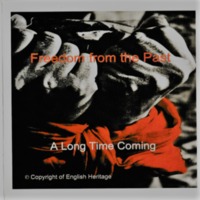
Freedom from the Past: Long Time Coming
A collaborative project between Churches Together in Northampton, English Heritage, Northamptonshire Black History Association (NBHA) and The Northampton Schools Excellence Cluster. Freedom From the Past: Long Time Coming was led by Mary Clarke, Director of the Doddridge Centre, where the NBHA office is based. The project commemorated the 1807 Act and the wider histories of black resistance and the fight against the slave trade through music, drama and historical workshops in Northampton.
The 'Passage' event was held in St Giles' Church on 25 March 2007, an evening of drama, songs and speeches reflecting on the legacies of slavery. There was a 150-strong gospel-style community choir drawn from schools in the Northampton area and local community groups. The event was one of a range of project activities in Northampton which brought together schools, community groups, churches and heritage organisations to explore the issues of slavery in the British Empire. Other events included a community event and 'Walk to Freedom' at the Northampton West Indian Community Association (NWICA) to mark 'Emancipation Day', annually held throughout the Caribbean to celebrate the abolition of slavery. English Heritage funded a professional DVD recording which was afterwards made freely available to NBHA members and others.
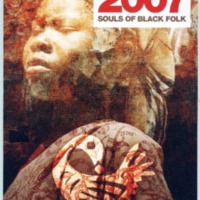
Black History Season Leicester 2007: Souls of Black Folk
Leicester's Black History Season in October-November 2007 marked the bicentenary of the abolition of the slave trade. Its aim was to redress the balance from a 'Eurocentric point of view' of abolition, and focus on the Afrikan perspective with the theme of 'Souls of Black Folk'. Musical performances included gospel, Motown, reggae and jazz. Other events in venues across Leicester and Loughborough included traditional South African dance, contemporary dance, performance poetry, comedy, multimedia performances, storytelling, theatre and an exhibition, 'Africa's Gift', focusing on the economic and cultural contributions of the slaves and their descendants.
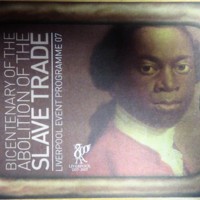
Liverpool Event Programme 07
Liverpool hosted a city-wide programme of activities and projects to commemorate the bicentenary, as part of events to mark the city's 800th birthday. The events aimed to celebrate the African Diaspora and support works by artists of African descent. They included: LEAP, an annual contemporary dance festival featuring African dance companies; a performance of Mighty Diamonds - Reggae Legends at the Philharmonic Hall; the Roscoe Lectures; the Brouhaha International Carnival, celebrating resistance, rebellion and abolition; the Africa Oyé Music Festival at Sefton Park; the Bound exhibition at Open Eye Gallery, showing works representing personal perspectives on the physical and psychological impact of slavery on humanity; and many other lectures and debates. There was also a slavery trail around the city.
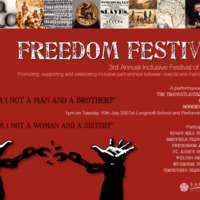
Freedom Festival 2007
East Riding's Freedom Festival in 2007 commemorated the abolition of the slave trade and explored issues of modern day slavery through a multi-sensory performance featuring pupils from mainstream and special schools in the East Riding area. The play was in three parts - the transatlantic slave trade, emancipation and modern day slavery. Resources and activities from the project were then made available to schools interested in developing an inclusive arts project.
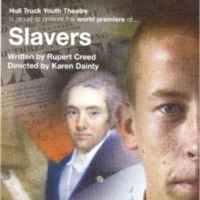
Slavers
Hull Truck Theatre supported Wilberforce 2007 with two specially commissioned productions, Slavers and Sold, and a playwright festival. For one week in August 2007, Hull Truck Youth Theatre presented Slavers, set in 2007, which told the story of abolition through the eyes of young people in Hull. Written by Rupert Creed and directed by Karen Dainty, the play followed a group of school leavers and their potentially prosperous business-start up, trading in human cargo. When some started questioning the morality behind the business, the audience was transported back to the debates of Wilberforce and his allies two hundred years previously. Another play, ‘Sold’, in conjunction with Liverpool Hope University, sought to raise awareness about the victims of human trafficking and sexual exploitation today.